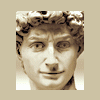Are you a Scientist?
Are You A Scientist?
1 member has voted
-
1. Are You A Scientist?
-
I am a scientist
-
I am a scientist in training
-
I am a employed as a scientist
-
I am a scientist as a private pursuit
-
I am an atheistic scientist
-
I am an agnostic scientist
-
I am a religious scientist
-
Science is my religion
-
I am not a scientist
-
I am afraid of science
-

Recommended Posts
Join the conversation
You can post now and register later. If you have an account, sign in now to post with your account.